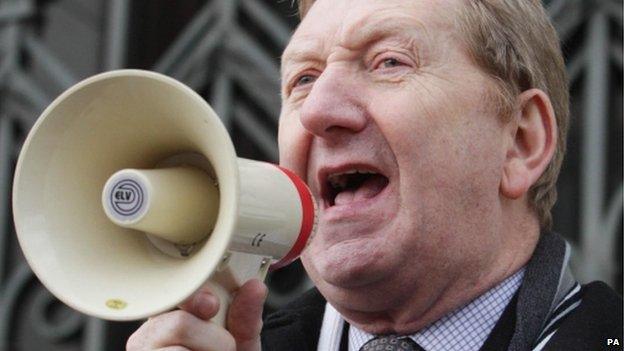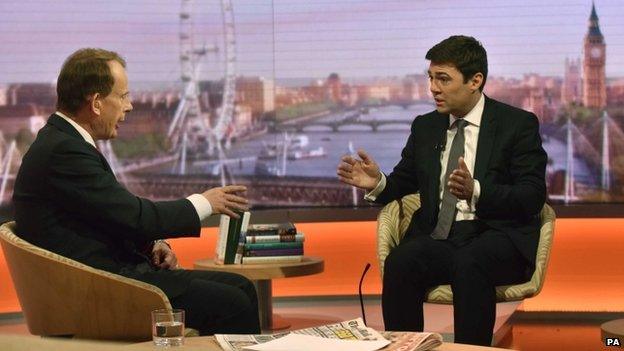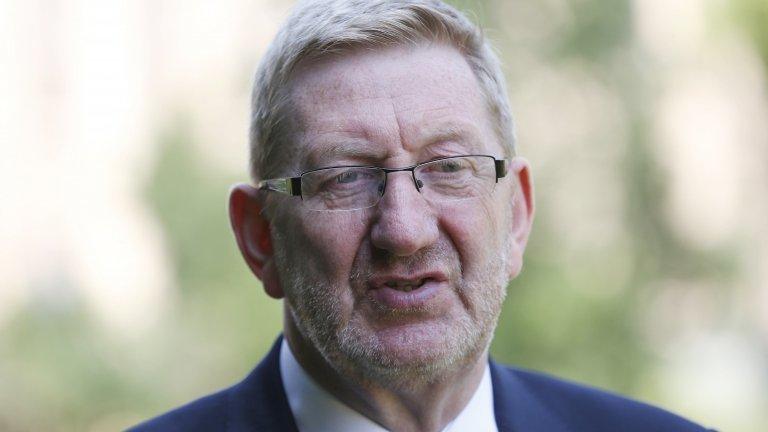Analysis: How unions might shape Labour's future
- Published

The struggle over Labour's future direction is now focused on its links with the unions.
In a passionate speech on Saturday, the party's outgoing leader in Scotland, Jim Murphy, denounced what he called the destructive behaviour of the leader of Britain's biggest union, Len McCluskey.
On Sunday the frontrunner in the leadership contest, Andy Burnham, struck a very different tone.
"I've been speaking to Len," he said, though he stressed he was also talking to business leaders and others as he musters support for his campaign.
Mr Burnham and his team have been trying to shrug off suggestions that he is the "union candidate", saying he wants to unify the party.
But the shadow health secretary did say how proud he was of Labour's links to the trade unions and the role of ordinary union members in choosing the party's next leader.

Mr McCluskey himself said he was being used as a "bogeyman" and was not responsible for Labour's losses in Scotland.
He delivered a thinly-veiled warning that the unions' future support could not be taken for granted.
The party he said must demonstrate that it is "the voice of ordinary working people... the voice of organised Labour".
If it doesn't, he said "then the pressure will grow from our members to rethink".
The problem for Labour is that it has to confront its failure to win in Middle England as well as the losses in its traditional heartlands.
'Decisive role'
Jon Cruddas, who helped draw up Labour's manifesto, dismissed both the "Duracell bunnies running around shouting 'aspiration aspiration" and those saying "if we had just been anti-austerity, we would have got in."
Mr Cruddas, a serious thinker in the party, said neither were sufficient in explaining the profound defeat inflicted at the polls.
The rules for the Labour leadership contest have changed since Ed Miliband was elected five years ago - the unions no longer have one third of the votes.
This time it will be one member, one vote. For the next three months new members can join as affiliated or registered supporters and take part in the vote.
The party says it wants to open the contest as widely as possible but if large numbers of union members sign up, they could once again play a decisive role in choosing the next leader of the Labour Party.
- Published17 May 2015
